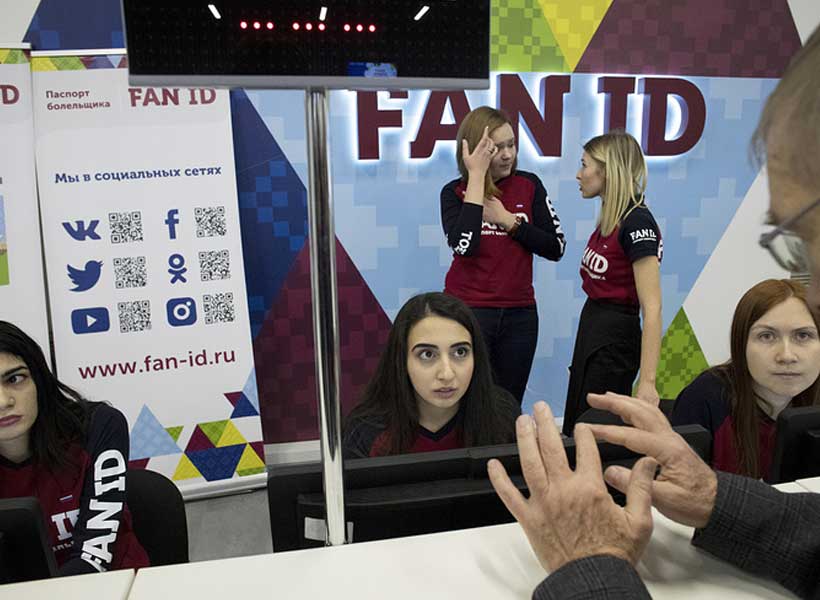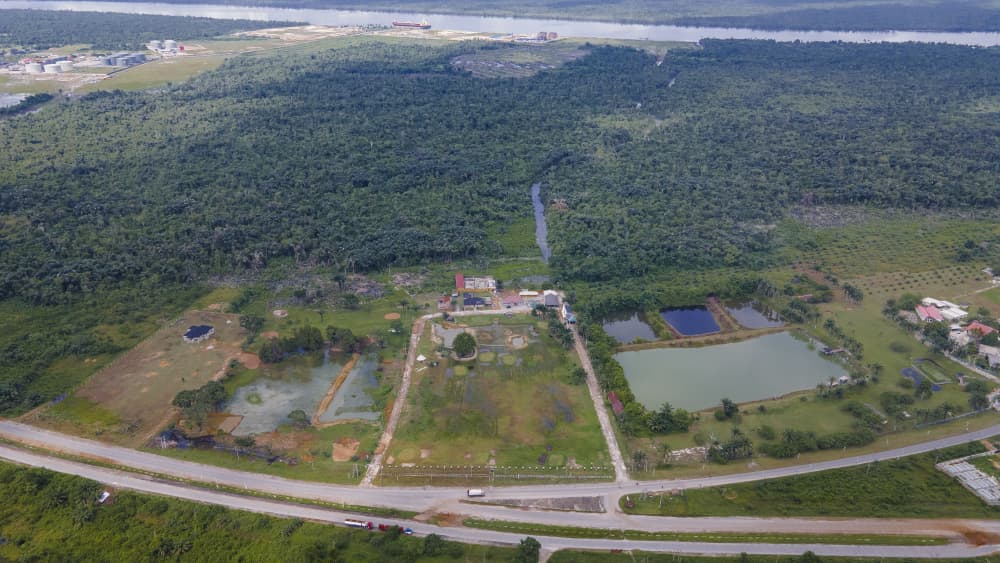Sports
St Petersburg Prepares to Hold UEFA Euro 2020 Matches

By Kester Kenn Klomegah
Saint Petersburg, Russia’s second-largest city, has prepared all the necessary infrastructure and facilities for hosting UEFA Euro 2020 matches this June and through July, according to information emerging from the office of City Governor Alexander Beglov.
The organizers assured that they would try to do everything to make the tournament as safe as possible. For those who have purchased tickets for football matches, it is enough to obtain a Fan ID. But before entering Russian territory, they will need to pass a coronavirus test. Fans who come to Russia for the European Championship will be able to stay in the country until July 12.
In addition to maintaining all the required security measures during the tournament, the City Administration also assured that the matches would be organized with strict adherence to safety measures for preventing the spread of the coronavirus. These measures worked out by the steering committee within the requirements set by the World Health Organization (WHO).
“As far as general security is concerned, our law enforcement services work very well. They will have a command centre directly at the stadium,” Alexander Beglov told local Russian media in late May. “Training is underway, and we have the understanding of what to do and how it should be done. We have the experience of hosting various tournaments.”
In and around St. Petersburg, the venue for the matches, the playing fields have been prepared. “We have the main arena, and we have prepared three more venues – the Petrovsky and Turbostroitel stadiums, and the facility in Zelenogorsk, where teams will train. There will be fan zones on Konyushennaya Square and Palace Square. Besides, another fan zone will be set up near the Yubileyny (Sports Palace),” he said,” adding that, “All the necessary infrastructure is ready.”
In March last year, UEFA announced a decision to postpone the 2020 UEFA Euro Cup for exactly one year as a preventive measure against the ongoing global spread of the novel coronavirus.
St. Petersburg was among the 12 cities initially proposed in Europe to host the European championship’s matches. It was granted the right to host three group stage matches and one of the quarterfinals of the UEFA Euro Cup. This was after Dublin (Ireland) and Bilbao (Spain) pulled out from the organization of the European football games citing anti-COVID-19 measures.
Overall, Russia’s second-largest city is scheduled to host the following matches: Belgium vs Russia (June 12), Poland vs Slovakia (June 14), Finland vs Russia (June 16), Sweden vs Slovakia (June 18), Finland vs Belgium (June 21), Sweden vs Poland (June 23) and a quarterfinal on July 2.
According to RIA Novosti report, the Head of the Government of the Russian Federation, Mikhail Mishustin, said that foreign fans would not need Russian visas to attend the European Football Championship in St. Petersburg and that corresponding order was already signed. In addition, UEFA official representatives, staff involved in the preparation and holding of the tournament, athletes and volunteers will get entry documents under the simplified procedure.
In order to attract fans as it was during the FIFA matches, Russia’s diplomatic missions abroad have started informing potential fans of the procedure for entering the Russian Federation during the Championships, specifically, how to obtain personal spectator cards or FAN IDs.
Russia’s diplomatic missions abroad have received FAN ID samples and related pamphlets for fans. FAN IDs allow their holders to enter the Russian Federation multiple times visa-free from May 29, through July 2, and to exit from the Russian Federation multiple times. The visa is provided exclusively free of charge, that is without any payment of fees, from May 29 through July 12, 2021.
The Foreign Ministry has instructed Russia’s diplomatic missions abroad to issue high-priority visas to media representatives, participants in sporting events and certain other categories of foreign citizens planning to take part in the Championships.
During the weekly media briefing, Foreign Ministry Spokeswoman Maria Zakharova discussed the situation about electronic visas to Russia. “It began with the FIFA World Cup. When football lovers, tourists and fans came to Russia despite spooky stories about Russia in Western media, they were shocked by the difference between what they had read and what they actually saw. They saw that our country is truly interesting, wonderful and spectacular,” she said at the briefing.
She, however, recalled how many people wanted to stay here longer and extended their visas and how many wanted to return. It was at that time that discussions began on the need to take relevant efforts to attract sports fans and change the negative social attitudes and image among foreigners.
The World Cup has left an indelible impression on the memory of many foreign fans who arrived in the country from all over the world. “I think the point here is not about our response to something, but about the desire to show what we really are, our country and give people an opportunity to decide for themselves,” explained Zakharova.
Significant to recall here that at the end of the last FIFA World Cup, President Vladimir Putin said: “We prepared responsibly for this major event and did our best so that fans could immerse themselves in the atmosphere of a magnificent football festival and, of course, enjoy their stay in Russia – open, hospitable, friendly Russia – and find new friends, new like-minded people.”
FIFA World Cup also ran in summer, from June 14 to July 15, in ten (10) different cities in Russia. The foreign fans who received Fan IDs and purchased tickets for the matches went to Russia without visas. After the World Cup, President Putin declared that the Fan ID holders would have the right to visit repeatedly visa-free until the end of that year.
UEFA Euro Cup is set in 11 cities, namely in London (England), Munich (Germany), Rome (Italy), Baku (Azerbaijan), Saint Petersburg (Russia), Bucharest (Romania), Amsterdam (The Netherlands), Budapest (Hungary), Glasgow (Scotland), Copenhagen (Denmark) and Seville (Spain). The European Championship 2020, for the first time, played in different countries. The tournament includes 12 cities in honour of the anniversary of the competition. The European Championship in 2020 marked 60 years.
Sports
When Weather Hijacks Betting Odds

Weather conditions such as rain, wind, snow, or extreme heat could have an impact on the nature of both teams’ style of play, the way that goals might happen, and the way they are priced by bookmakers like 1xbet. Therefore, in recent years, the weather has been seen as one of the quickest, non-visible influences on wagering and gambling.
In the final hours leading up to a game, many individuals who wager money will either check the weather or look to confirm it has been altered before they access the relevant sites to wager on the game. The result is often that there has been a change in price immediately after the event has been confirmed. There is no requirement for a weather press conference to take place, as weather conditions will dictate when to make price adjustments.
Mobile alerts make weather-driven moves faster
Modern weather surprises spread instantly in modern betting with radar images on social media; waves of bets have begun flooding in before even national broadcasters are reporting current weather conditions. The overwhelming influence of weather bets is multiplied by players being able to place their wagers using mobile devices, as they are able to follow thick and thin markets by paying close attention to their mobile betting devices via 1xbet apk, to be ready and able to react immediately when weather-related news breaks. When rain starts to come down heavily or winds start to pick up, bettors adjust their expectations and place bets on things like totals, corners, and/or cards, respectively.
The fact that bets can be processed and accepted instantly when betting with mobile devices provides tremendous value and importance to how pre-match odds can be pushed up and down quickly, even though the movements in pre-match odds may have been created with only a small portion of the total stake being made by the total number of bettors.
Why wind and rain hit the goal markets first
Players from getting enough distance on long balls, which can cause problems with crossing the ball. Heavy rainfall can affect pass accuracy and create unexpected deflections due to players slipping or losing their footing. High temperatures can affect the pace of play and increase fatigue.
Bookmakers commonly will alter goal-related markets first when weather has a significant impact on shot quality and chance conversion. If the pitch is heavy, teams may be able to create attacking chances but not be able to finish them. Strong winds can disrupt how set pieces are taken, which makes them unpredictable.
Typical types of weather effects that drive odds adjustments include:
- strong wind reducing the accuracy of crosses and long shots;
- heavy rain reducing pace of play and increases slips, getting muddy pass accuracy and less cleanly taken.
- waterlogged playing surface, creating difficult passing;
- very high temperatures causing slower second halfs;
- and cold weather reduces stamina and touch.
These elements affect total point spread lines and sometimes also point spread lines in instances where either team is using more of a certain style of play.
How odds shifts look when the forecast changes
Weather-based movement often follows a recognizable sequence: forecast update, market pause, then adjustment. It can happen in minutes.
| Weather shift before kickoff | What bettors expect | Where odds usually move |
| Wind picks up sharply | Fewer clean chances | Under goals shortens |
| Heavy rain starts | Slower play, more mistakes | Totals and corners adjust |
| Heat wave confirmed | Lower tempo late | Second-half totals drift |
| Sudden storm warning | Match may stop or delay | Markets suspend briefly |
| Pitch declared heavy | Physical game, fewer patterns | Cards and unders tighten |
The public reacts late, the market reacts early
Oddsmakers adjust the line in their favor before the average bettor has even thought to make a wager on a particular matchup. Many recreational players are betting based on team name and recency—weather is an afterthought, if that at all.
Trained bettors will typically make their move much earlier in the process by being tuned into the weather forecast and any stadium information. Once they get their money in early, the oddsmakers adjust the odds and the recreational players will wager at a different price.
That’s why the weather has such a huge ability to create a “pre-match surprise”; it can quickly change assumptions and betting markets are based on assumptions.
Smart ways to handle weather-driven chaos
The weather offers chance and also risk. Quick checklists come in handy when making smart choices:
- Check the current market movement before betting on a new weather event.
- Don’t accept forecast headlines generally; look back for context.
- Assess style of play: crossing the touchline, tempo, and physical size.
- Don’t rely solely on morning weather updates; check late changes to match timing as well.
- Be cautious when betting on the live market after the weather created chaos.
The forecast does not match, but the forecast could create a change to the match, which can createa change to the odds.
Weather is not background noise anymore
Today’s weather plays a major factor in today’s gaming and gambling markets. Weather conditions can completely alter game pace and a gambler’s approach to betting. Many times, sportsbooks have to adjust pricing for an entire section of the board at the last minute due to these changing weather patterns.
The important piece is understanding the reasons behind odds movement in order to take advantage of them rather than just noticing they have moved. As weather conditions change at the end of a sporting event, the betting market is reacting to uncertainty, and when uncertainty increases, the odds do not typically remain as displayed on the betting screens.
Sports
Golf Training, Tournament Hold March 8 in Warri North

By Henry Ovie
A one-day golf training and tournament specifically for girls has been fixed for Sunday, March 8, 2026, in Koko, in the Warri North of Delta State.
A statement from the organisers of the event, Canaan Land Golf Training and Tournament, disclosed that about 50 girls would be accommodated.
Tagged The Biggest Giving Day of the Year, the programme, according to the chief executive of Akogate Group, Mr Felix Aganbi, will entrench the attitude of excellence and develop young, highly quality golfers in terms of their golf quality and personal character.
He urged parents in Nigeria and abroad to allow their daughters to attend the event, saying it will build their confidence.
“The golf training and tournament will introduce girls to golf in a social and engaging environment. It will also help them build confidence, learn vital skills, and connect with others in a friendly community,” he was quoted as saying in the statement on Thursday.
The programme, which will take place at the Canaanland Golf and Country Club, celebrates the social, economic, cultural and political accomplishments of women as well as raises awareness for accelerated gender parity
“Open to girls in years 8-16, the training and tournament provide high-quality coaching to assist the girl child in pursuing excellence in the sport of golf,” Mr Aganbi noted, listing technical skill development, comprehensive fitness and mental conditioning as key features of the training.
“The girls will learn the basics of golf grip, stance, posture alignment, golf rules and etiquette. They will also be taken for an 18-hole playing lesson.
“The training and tournament will broaden opportunities for girls in Nigeria to realise their potential through education.
“Canaanland Country Club shall continue to encourage the education of females, improve the economic position of women and enhance their participation in matters relating to both the family and the society.
“It is also to join hands with the government in making our state a better place to live, campaign for the dismantling of systemic barriers and push for the power of reciprocity and abundant giving,” he disclosed.
Driven by Sir Alfred and Mrs Warami Temile, Mr Aganbi said the “club would continue to provide necessary assistance for the general development of people, especially those who live in the rural areas.”
In a related development, Mr Aganbi said the Oluremi Tinubu Golf Classic would take place on Saturday, April 25, 2026, at Canaanland Golf and Country Club, Koko.
“The tournament will attract international talent, create opportunities for emerging players and motivate the next generation to see what is possible in the women’s game,” he stated, adding that over 75 women are expected to participate.
The event is another important step in strengthening the women’s game in Nigeria, delivering significant benefits to the Niger Delta, drawing women, officials and fans to Warri North and boosting tourism and hospitality industries in Delta State.
Sports
Access Bank Lagos City Marathon Top 10 Finishers Share N10m from Aquafina

Aquafina took centre stage at the 11th edition of the Access Bank Lagos City Marathon on 14 February 2026, rewarding the first ten groups to complete the 10-kilometre race with N1 million each. The initiative highlights the brand’s continued investment in fitness, wellness, and the spirit of collective achievement within Nigeria’s growing running community.
Under its campaign theme, “Run am with your Padi of Life,” Aquafina encouraged runners to participate alongside friends, teammates, and running crews, celebrating the role of support systems in pushing limits and sustaining performance.
Throughout the race, Aquafina ensured strong on-course visibility while providing hydration support to help participants maintain energy levels. Its on-ground activations added excitement for both runners and spectators, contributing to the vibrant atmosphere of the event.
By rewarding groups rather than individual runners, Aquafina spotlighted the value of shared goals and mutual accountability. The N1 million prize elevated the competitive energy of the 10km race while reinforcing the importance of collaboration within Nigeria’s evolving fitness culture.
Widely regarded as one of West Africa’s most prestigious road races, the marathon once again attracted elite athletes, recreational runners, corporate teams, and fitness enthusiasts from across the country and beyond. Within this high-energy environment, Aquafina positioned itself as a trusted hydration partner supporting endurance and peak performance.
Speaking after the race, Funso Elubeku, Assistant General Manager at Seven-Up Bottling Company (SBC), said:
“The Access Bank Lagos City Marathon represents resilience, discipline, and the power of community. Through Aquafina, we ensured participants remained hydrated while celebrating the teamwork and support that helped runners push beyond their limits. Rewarding the first ten finishers underscores our commitment to recognising dedication, performance, and personal achievement.”
Aquafina’s presence at the marathon underscores its broader mission to promote active lifestyles and support platforms that inspire healthier living, strengthening its connection with Nigeria’s fitness community through meaningful engagement.
-

 Feature/OPED6 years ago
Feature/OPED6 years agoDavos was Different this year
-
Travel/Tourism10 years ago
Lagos Seals Western Lodge Hotel In Ikorodu
-

 Showbiz3 years ago
Showbiz3 years agoEstranged Lover Releases Videos of Empress Njamah Bathing
-

 Banking8 years ago
Banking8 years agoSort Codes of GTBank Branches in Nigeria
-

 Economy3 years ago
Economy3 years agoSubsidy Removal: CNG at N130 Per Litre Cheaper Than Petrol—IPMAN
-

 Banking3 years ago
Banking3 years agoSort Codes of UBA Branches in Nigeria
-

 Banking3 years ago
Banking3 years agoFirst Bank Announces Planned Downtime
-

 Sports3 years ago
Sports3 years agoHighest Paid Nigerian Footballer – How Much Do Nigerian Footballers Earn












